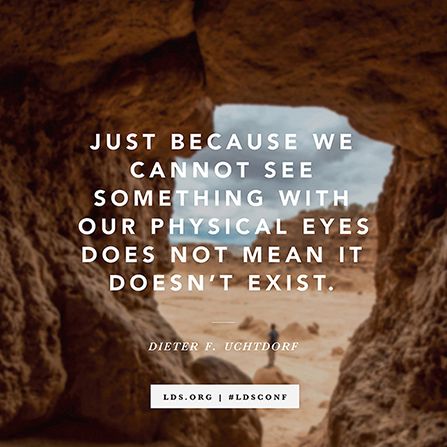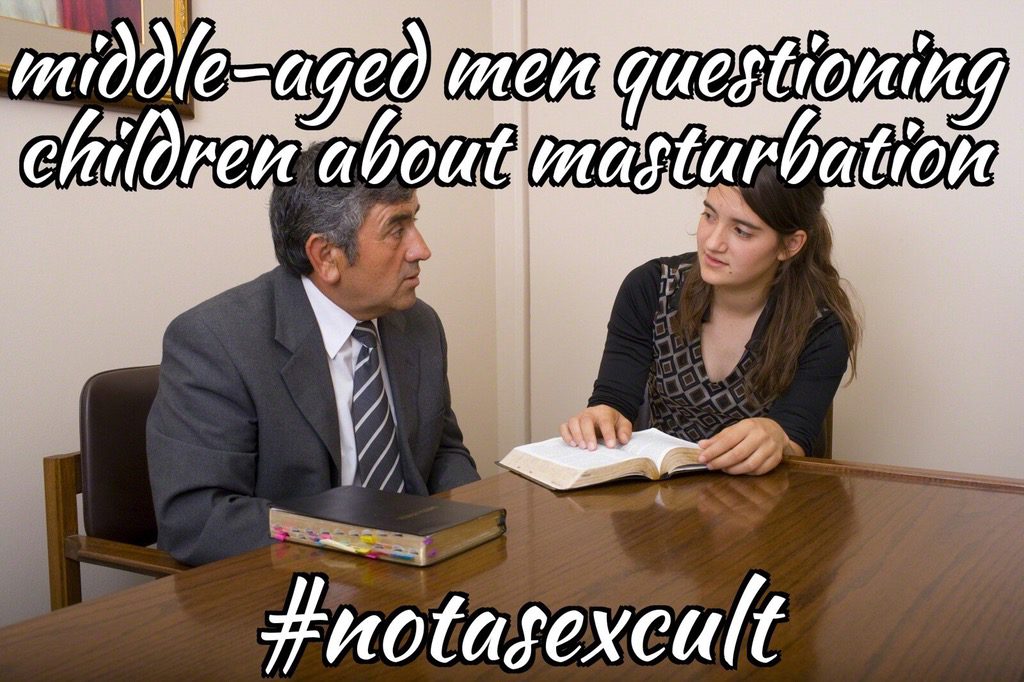“The First Principles and Ordinances of the Gospel”
Reading assignment
Study the scripture passages listed in the following questions and in the scripture chain.
2 Nephi 25:23; Alma 42:13–24; D&C 18:10–13; D&C 19:15–19; Articles of Faith 1:3
Links: Teacher’s manual | Student manual
It’s a busy year for Your Humble Godless Doctrine teacher. So I’m posting this lesson as kind of a rough outline, with the intention of filling in the details later. Think of this as the notes that a Gospel Doctrine teacher would walk into class with.
Reading
This lesson is about the first four principles of the gospel. Let’s recite them in unison.
Article of Faith 4 We believe that the first principles and ordinances of the Gospel are: first, Faith in the Lord Jesus Christ; second, Repentance; third, Baptism by immersion for the remission of sins; fourth, Laying on of hands for the gift of the Holy Ghost.
A side note: As a member of thirty-plus years, it drove me insane that we would be studying this again in Gospel Doctrine class. It made me feel like I was in some kind of intellectual lacuna of vapidity, and this was one of the things that convinced me that there was no “there” there. If you can get through this lesson and say, “Gee, I actually learned something from this lesson, and I can’t wait to return to it in another four years,” then you’re not me.
So let’s get to it!
Faith
As I’ve mentioned before, faith is belief without evidence. If you have evidence, we call that knowledge. And the Book of Mormon agrees.
Alma 32:18 Now I ask, is this faith? Behold, I say unto you, Nay; for if a man knoweth a thing he hath no cause to believe, for he knoweth it.
Faith is a terrible thing to have. If you don’t have evidence for something, but you’ve decided to believe it anyway, then it’s very likely you’re believing something wrong. Find evidence (but first learn what good evidence looks like), and then believe it.
But of course, religious leaders are always there to convince us to ignore the evidence of our senses.
Back to the manual.
• Read D&C 8:10 with class members. What can we accomplish without faith? What can we accomplish with faith? (For some answers to this question, see D&C 35:9; 42:48–51; 63:9–11; Moroni 7:33.) How have you seen the power of faith manifested?
You can accomplish anything without faith. All the great scientific discoveries we’ve made have not required faith. You can disbelieve in them and they’re still true.
But surely if you believe in a scientific idea that you don’t fully understand, you’re exercising faith, right?
Wrong. For one thing, you can find out about it from someone who does understand it. For another, if anyone can point out why that idea is wrong, people who do science will change their minds about that idea.
Faith only works when people choose to believe the idea. Science works because people relentlessly challenge ideas, and change them when they don’t work. No faith required!
Repentance
This part starts with an object lesson.
Ask a class member to volunteer to come forward. Blindfold the volunteer and ask him or her to write the following phrase on the chalkboard: Jesus is the light of the world. Remove the blindfold and ask the person to write the same phrase again on the chalkboard. Then have the person sit down.
• How is sinning like putting on a blindfold? How is exercising faith in Jesus Christ and repenting of our sins like removing the blindfold? What can we see more clearly when we repent?
Wouldn’t a better metaphor be that you do things worse when your church causes you to wilfully blind yourself?
Now you might think that it’s a good idea to get rid of your bad habits. But the manual tells that this isn’t the real goal.
• What is the difference between true repentance and merely breaking a bad habit or changing a behavior?
President Ezra Taft Benson explained: “Repentance means more than simply a reformation of behavior. … True repentance is based on and flows from faith in the Lord Jesus Christ. There is no other way. True repentance involves a change of heart and not just a change of behavior (see Alma 5:13)” (The Teachings of Ezra Taft Benson [1988], 71).
Self-improvement is great, but the manual makes it clear that it’s not about self-improvement; it’s about accepting that you’re broken and you need to be fixed by someone else.
Explain that when we sin, we become unclean and subject to the punishments required by the law of justice. Being imperfect, we cannot become clean again or meet the demands of justice on our own. By atoning for our sins, the Savior took upon Himself the punishments required by the law of justice and is able to offer the mercy and forgiveness we need to become clean. These blessings of the Atonement are available to us only on the condition that we repent (Alma 7:14).
It’s important to remember that this was all God’s idea. Being all-powerful, he could have made this system any way he wanted, but he decided to do it this way:
He made us imperfect so that we couldn’t help but sin. Then he decided to get his son killed so that he could forgive us. Then he didn’t.
D&C 19:15 Therefore I command you to repent, lest I smite you by the rod of my mouth, and by my wrath, and by my anger, and your sufferings be sorehow sore you know not, how exquisite you know not, yea, how hard to bear you know not.
Nice one, God!
D&C 19:16 For behold, I, God, have suffered these things for all, that they might not suffer if they would repent;
17 But if they would not repent they must suffer even as I;
18 Which suffering caused myself, even God, the greatest of all, to tremble because of pain, and to bleed at every pore, and to suffer both body and spiritand would that I might not drink the bitter cup, and shrink
Again, why would God demand suffering from his creations?
Learning to do better is great, but this has little to do with the perpetual debasement ceremony that Mormons call repentance, some of which may involve humiliating and pointless confessions to local church leaders.
Yes, in the LDS Church, they actually have…
My advice: Never confess anything to an LDS leader. Whatever you do is nothing that he needs to know about. Tell your partner. Tell the police, if you must.
Baptism
Pointless repentance is followed by a farcical aquatic ceremony in which you get soaked.
The manual asks:
What are the purposes of baptism?
The purpose of baptism is to put someone through a public declaration of commitment, because people are less likely to back out of a commitment if they had to make some public declaration about it. It signals to the person and others, “Wow, now you really must believe it, since you did that dumb ceremony.”
Why is it necessary to be baptized by one who has the proper authority? (See D&C 22.)
Okay, let’s see.
D&C 22:1 Behold, I say unto you that all old covenants have I caused to be done away in this thing; and this is a new and an everlasting covenant, even that which was from the beginning.
“I know I described the old covenants as everlasting, but this time I mean it.”
2 Wherefore, although a man should be baptized an hundred times it availeth him nothing, for you cannot enter in at the strait gate by the law of Moses, neither by your dead works.
“You could be baptised a hundred times by Jews and it won’t do any good.”
3 For it is because of your dead works that I have caused this last covenant and this church to be built up unto me, even as in days of old.
“No seriously, doing things doesn’t accomplish anything.”
4 Wherefore, enter ye in at the gate, as I have commanded, and seek not to counsel your God. Amen.
“Do what I told you to do, and don’t tell me what to do.”
So basically, this is a cranky god’s attempt at brand protection.
Confirmation
After baptism, you get the gift of the holy ghost. He can be your constant companion, until the very minute you do anything wrong, at which point he buggers off.

According to LDS leaders, non-Mormons only get sporadic visits, and these are really only supposed to convince them to become Mormons.
• What is the difference between a manifestation of the Holy Ghost and the gift of the Holy Ghost?
Elder Dallin H. Oaks of the Quorum of the Twelve taught: “Manifestations of the Holy Ghost are given to lead sincere seekers to gospel truths that will persuade them to repentance and baptism. The gift of the Holy Ghost is more comprehensive. … [It] includes the right to constant companionship, that we may ‘always have his Spirit to be with [us]’ (D&C 20:77)” (in Conference Report, Oct. 1996, 80; or Ensign, Nov. 1996, 60).
So how does the spirituality of Mormons compare with that of non-Mormons?
Elder Bruce R. McConkie of the Quorum of the Twelve compared the manifestations of the Holy Ghost that a person can receive before baptism to flashes of lightning that “[blaze] forth in a dark and stormy night.” He compared the gift of the Holy Ghost that a person receives after baptism to “the continuing blaze of the sun at noonday, shedding its rays on the path of life and on all that surrounds it” (A New Witness for the Articles of Faith [1985], 262).
It’s nice to know that Mormons have this level of enlightenment. They can’t help but disparage people, can they?
On the other hand, it’s sad that Mormons show so little goodness, discernment, or moral leadership in their everyday lives, of which the 2016 election was only one example.
Enduring to the End
From the manual:
When we are baptized, we enter the path that leads to exaltation. However, this single experience does not ensure that we will be exalted. As the Lord frequently admonishes in the Doctrine and Covenants, we must also keep the covenants we made at baptism to endure faithfully to the end of our lives.
I had a couple of sister missionaries knock on our door this week. I invited them in for a drink, and explained that I was an ex-Mormon. I like to do this because it shows them that your life doesn’t fall apart when you leave the church. You can live a good, satisfying, ethical life as a non-believer.
One of the missionaries asked me why I left. (They don’t usually.)
I explained that many people in the church think that ex-members “were offended” or “wanted to sin”. And most disparagingly, they think ex-members couldn’t “endure to the end”. But I explained that this is wrong. I simply stopped believing it was true, for reasons I was happy to explain. And if you don’t think something is true, then not supporting it is the right thing to do. It’s what a person of integrity would do.
“Well,” said one, “I guess everyone has their view.”
That was the sound of someone checking out.



12 February 2017 at 11:17 pm
Great lesson! Learned a lot!
19 February 2017 at 7:43 am
Thank you so much for doing these lessons – they are fantastic!